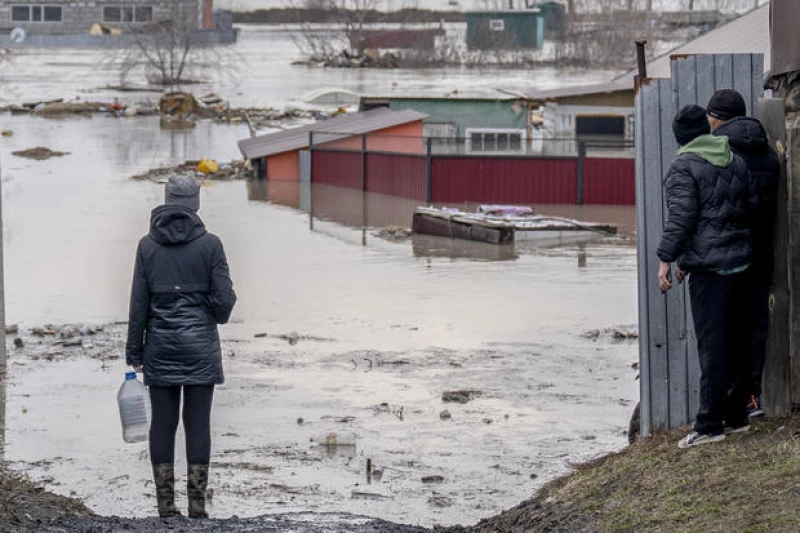Reports of unusually heavy seasonal rains have caused widespread flooding across southern Russia and Central Asia, resulting in numerous casualties and displacing tens of thousands of people in Kazakhstan and Russia.
Experts attribute the atypical intensity of the flooding to human-induced climate change, warning that the situation may worsen as more rain is forecasted and rivers continue to overflow their banks.
Deadly Consequences in Pakistan and Afghanistan
Recent lightning strikes and heavy downpours claimed the lives of at least 36 individuals in Pakistan, with the majority being farmers. Emergency response officials declared a state of emergency in the country's southwest, citing incidents of farmers being struck by lightning and houses collapsing due to torrential rain. Anticipating further precipitation in the upcoming week, authorities are bracing for additional challenges.
Prime Minister Shehbaz Sharif of Pakistan has instructed authorities to expedite relief efforts in the affected areas, where infrastructure has been severely impacted by swollen rivers and flash floods.
In neighboring Afghanistan, the country's Taliban rulers said Sunday that heavy flooding from seasonal rains had killed at least 33 people and left more than two dozen others injured over three days. Abdullah Janan Saiq, the spokesman for the government's disaster management agency, said the flash floods hit the capital, Kabul, and several other provinces.
He said more than 600 homes were damaged or destroyed completely, with hundreds of acres of farmland destroyed and many farm animals killed.
The Afghan weather service was also forecasting more rain over the coming days across much of the country.
Mass evacuations in Russia and Kazakhstan
There has been widespread flooding in the Russian Urals regions and neighboring Kazakhstan for days, caused by melting mountain ice swelling rivers; it is being exacerbated by heavy rainfall. In some places, only the roofs of houses were visible Monday above murky waters that had engulfed entire neighborhoods.

"Why has it come to this? No one has done anything for 60 years," said Alexander Kuprakov, a Petropavl resident, criticizing the government for having made "no investment" in the area to avoid such a situation.
Elena Kurzayeva, a 67-year-old pensioner in Petropavl, told AFP: "I was taken out yesterday and within 15 minutes the water had come in."
Spring flooding is a regular occurrence but this year, it is much more severe than usual. Scientists agree that climate change caused by humans burning fossil fuels is worsening the risk of extreme weather events such as floods.
Kazakh President Kassym-Jomart Tokayev said earlier this month that this was the country's worst natural disaster for the last 80 years.

The floods have already submerged 34,000 homes in Russia's southern Orenburg region, due to the rising Ural River. AFP journalists on Saturday saw residents being evacuated in boats and police vehicles in the regional capital Orenburg.
Water levels in the rivers of Russia's Siberian Tyumen region could also reach all-time highs, RIA cited governor Alexander Moor as saying on Monday, according to the Reuters news agency.







